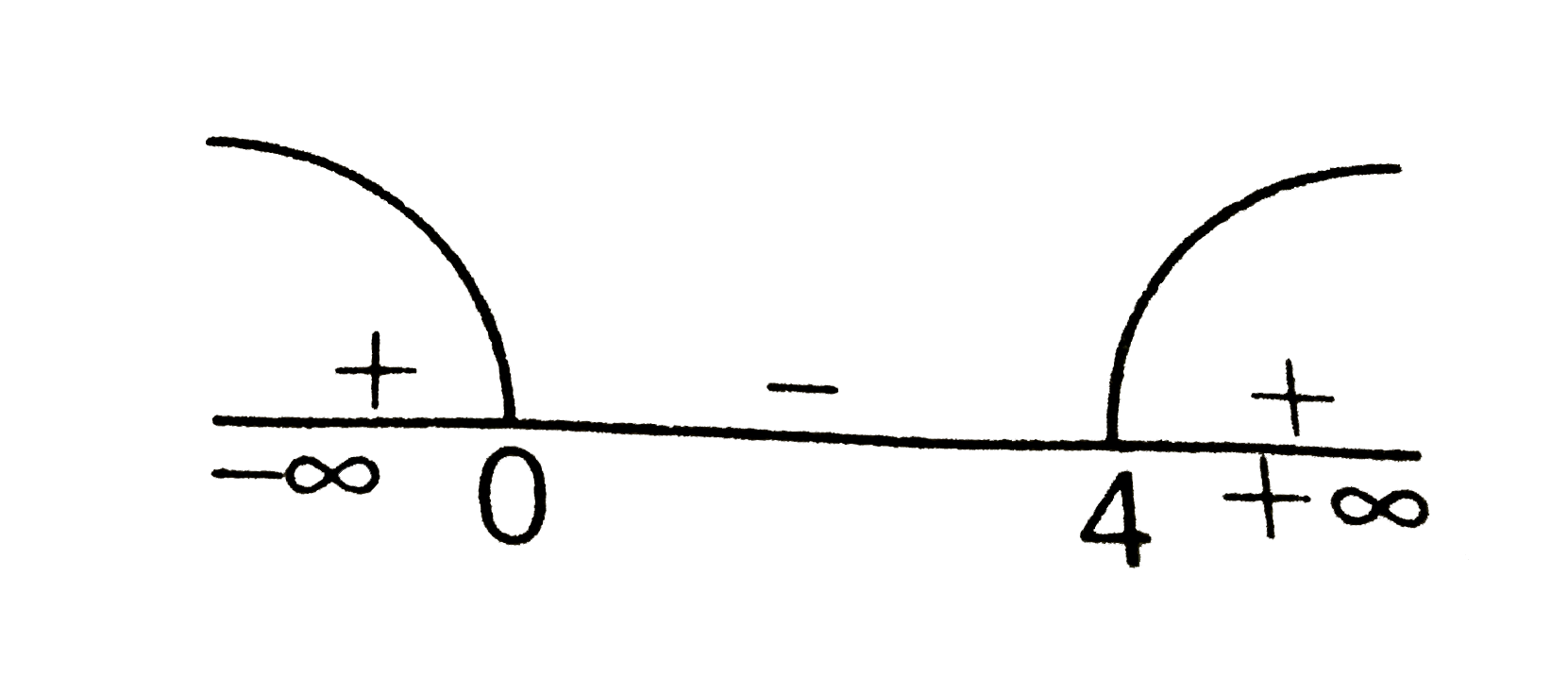Question 8
The zeroes of the quadratic polynomial x2+kx+k where k≠0, are : (1)cannot both be positive (2)cannot both be negative (3)are always unequal (4)are always equal
Solution:
Let p(x)=x2+kx+k,k≠0
On comparing p(x) with ax2+bx+c, we get
a=1,b=k and c=k
Now, x=[−b±√(b2−4ac)]/2a [by quadratic formula]
=[−k±√(k2−4k)]/(2×1)
=[−k±√{k(k−4)}]/2,k≠0
Here, we see that
k(k−4)>0
⇒k∈(−∞,0)∪(4,∞)
Now, we know that
In quadratic polynomial ax2+bx+c
If a>0,b>0,c>0 or a<0,b<0,c<0,
then the polynomial has always all negative zeroes. and is a>0,c<0 or a<0,c>0, then the polynomial has always zeroes of opposite sign.
Case I if k∈(−∞,0) i.e., k<0
⇒a=1>0,b,c=k<0
So, the zeroes are of opposite sign.
Case II If k∈(4,∞)i.e.,k≥4
⇒a=1>0,b≥4
So, both zeroes are negative
Hence, in any case zeroes of the given quadratic polynomial cannot both be positive.
